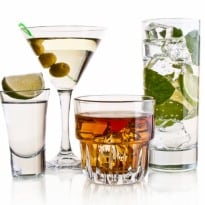Binge drinking causes insulin resistance, which spurs a greater risk of Type 2 diabetes, according to the results of an animal study. Insulin resistance (IR) arises when cells fail to respond to the normal actions of the hormone insulin. It delivers sugar to cells to provide them with energy. Researchers from the Diabetes Obesity and Metabolism Institute at the Icahn School of Medicine at Mount Sinai discovered that alcohol disrupts insulin-receptor signalling by causing inflammation in the hypothalamus area of the brain.
This part links the nervous system to the endocrine system via the pituitary gland, the journal Science Translational Medicine reports. "Insulin resistance has emerged as a key metabolic defect leading to Type 2 diabetes and coronary artery disease (CAD)," said Christoph Buettner, senior study author and associate professor of medicine (endocrinology, diabetes and bone disease). "Someone who regularly binge drinks even once a week, over many years, may remain in an insulin resistant state for an extended period of time, potentially years," said Buettner, according to Icahn School statement. Researchers treated rats with alcohol for three consecutive days to simulate human binge drinking. A control group received the same amount of calories. Once alcohol was no longer detectable in blood, glucose metabolism was studied through either glucose-tolerance tests or through controlled-insulin infusions. The rats treated with alcohol were found to have higher concentrations of plasma insulin than the control group, suggesting that insulin resistance may have been the cause of the impaired glucose tolerance. High plasma insulin levels are a major component of the metabolic syndrome, a group of risk factors that occur together and increase the risk for Type 2 diabetes, coronary artery disease, and stroke.
Advertisement



